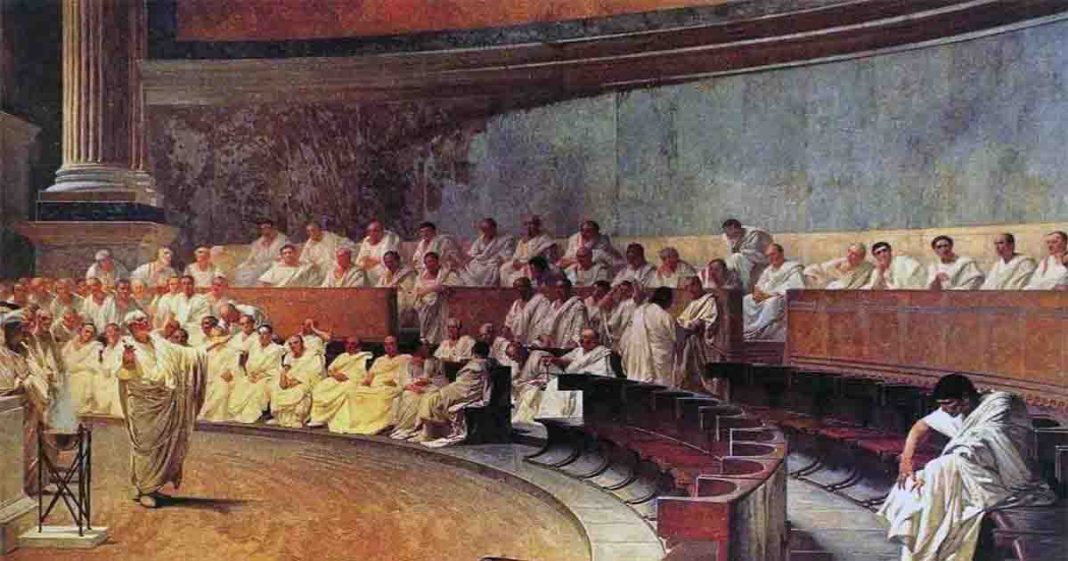Julius Caesar kept standing while senators were stabbing him from all directions; he fell when his loyalist Brutus also pierced him with his dagger saying: “Et tu, Brute?” Even you, Brutus?’. The quote from Act 3, Scene 1 of William Shakespeare’s play Julius Caesar has immortalized the Roman Senate. Today, thanks to Netflix, there is no shortage of movies and documentaries reminding us of the treacherous nature of the Roman Senate.
Read more: Pakistani Senate Elections: The Good, the Bad and the Ugly?
The word “Senate” is derived from the Latin term Senatus, that means a council of elders (Senex meaning ‘old man’ in Latin). Elders that were supposed to guide politics and society with their age earned wisdom. Rome’s illustrious Senate was the prerogative of the aristocracy.
One needed a lot of money from respectable sources (agriculture and not ‘business’), had to be popular among the voters and needed powerful connections! After a Roman magistrate (an elected office) served his term in office, he would be automatically appointed to the Senate. The political intrigues that underlay the election of Roman consuls would not look too different from what is alleged to happen in Pakistan. With a bit of cynicism, we can easily claim that the Senate was always a club of powerful, corrupt old men.
Read more: Why or why not an ‘open ballot’: Insights by experts Senate Elections 2021
Roman Senate served as the dominant branch of government. It was the Consuls (two were elected to serve for one year), who led the armies and the government in Rome. While an elected Assembly did exist to look at legislation, the Senate controlled the empire’s finance, day-to-day administration, and foreign policy. During an emergency, the Senate could also authorize the appointment of a dictator, which they did on several occasions – the most famous in Roman history being “Julius Caesar”
The Senate disappeared by the early middle ages but returned under modern democratic era; which saw many countries adopting the model of having two houses of decision making; a “lower” one which is elected, and an “upper” house that may be elected, appointed or may inherit their position (as was the case in the UK until recently) and kept watch over the lower house. Currently, around 40% of the world has a bicameral system in which two legislatures exist – but real power always lies in the lower house, except the US where it’s not that black and white.
Read more: Senate Elections: PPP to oppose government’s proposed constitutional amendment
US Senate, probably the most famous in the world currently, was formed in 1789 on the lines of the ancient Roman Senate; aim was to give each state in the union an equal representation in the running of the nation without regard to its population. Each state sends two senators to Washington.

In the US from 1789 to 1913, senators were appointed by legislatures from the states they represented. Following 17th Amendment in 2013, they are elected by popular vote. Interestingly, this amendment came after problems surfaced over bribery and intimidation, intrastate political struggles, and vacant seats due to the legislature’s inability to elect senators. Maybe in 2021, Pakistani politics has finally reached the stage of consciousness where the US was in 2013. Let’s wait till the end of February to find out.


